Last week it seemed like even the intervention of U.S., British and French airpower might not be enough to enable the Libyan rebellion to regain the momentum against Libyan government forces. Now it looks like the balance has shifted in the rebels’ favor, if not yet decisively so. For me, as a supporter of the intervention, that makes this week an even better moment than last to emphasize that we should not be judging the wisdom of our involvement based on the latest isolated news accounts from the front, and that it is wildly premature to assess any ultimate outcomes. […]
Global Archive
Free Newsletter

While many in the West fret over the challenge of “rebalancing” the global economy after the recent global financial crisis, several trends suggest that the field of supply chain management could offer a key advantage for an America eager to double its exports by 2014. On the surface, supply chain management might not sound too sexy, but understand this: In today’s globalization, neither companies nor countries compete — supply chains do. Companies like Wal-Mart have known this for some time. Thus, positioning America to be the world’s pre-eminent provider of secure, transparent and efficient supply chains will ensure that our […]

NEW DELHI — In India’s vibrant capital, food seems to be everywhere — from bustling fruit and vegetable markets and greasy kebab stalls, to sumptuous platters in rooftop restaurants and dilli ki chaat, Delhi’s ubiquitous street snacks. Poor street vendors and high-end chefs alike offer a multitude of culinary options to keep the city — and its array of visiting tourists, diplomats and business leaders — well-fed. Yet behind this apparent culinary prosperity lies rampant food insecurity. Food-related inflation in India soared above 18 percent in December, sparking street protests over high onion prices. Today, food-related inflation remains high, at […]
A number of attempts to create alternatives to the U.S. Global Positioning System are underway. Russia is close to completing its GLONASS system, which India plans to join, while China is working on developing its own system. In an email interview, Charles Vick, senior technical and policy analyst for GlobalSecurity.org, discussed global satellite navigation systems. WPR: What countries are currently pursuing a global navigation satellite system (GNSS) capability and what is the status of their programs? Charles Vick: The Global Positioning System (GPS), the global navigation system developed by the U.S., remains the primary system used by both the military […]
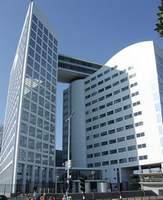
For observers and advocates of the International Criminal Court (ICC), the Feb. 26 U.N. Security Council resolution imposing sanctions on Libya (.pdf) was nothing short of a breakthrough: It marked the first time a decision to refer crimes to the ICC was backed by all members — including the United States, which has been openly hostile to the court for much of its existence. Three weeks later, the U.S. showed support for the ICC yet again, albeit less publicly. During informal talks at the Security Council on March 18, a Kenyan delegation lobbied for a one-year deferral of two ICC […]
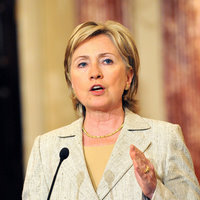
As an Army brat who grew up traveling the world, I’ve witnessed first-hand both the power and sense of hope that the United States projects around the globe. These qualities stem from both the might of our military as well as the less tangible characteristics of our diplomatic and compassionate efforts. In decades past, the roles of the State Department and Defense Department were often considered to be parallel and discrete. State negotiated treaties and engaged in diplomatic and aid missions around the globe, whereas Defense was brought to bear when words failed to suffice. Despite being complementary, these elements […]

The opening acts of the 21st century have fundamentally challenged long-held notions of military power. The past decade has unveiled not only the disruptive power of terrorist groups with global reach, but also the ability of low-budget insurgent groups to directly confront the best military forces of the West — with surprising success. Moreover, recent revolutionary events across the Arab world have demonstrated the limits of military power when facing mass popular uprisings. Disorder, chaos and violent extremism seem on course to replace state-on-state violence as the most common forms of conflict in the new century. Given this new security […]

There is no popular or expert consensus about which actors possess economic power in the 21st century. Public uncertainty is reflected in the April 2010 Pew Global Attitudes survey, which reveals interesting cross-country discontinuities in the perception of power. When asked to identify “the world’s leading economic power,” a majority of respondents in a diverse array of developing countries — including Brazil and India — name the United States. On the other hand, in the developed world, the results look dramatically different, with strong pluralities in five of the original G-7 economies — including the United States, Japan and Germany […]

One of the most revealing features of today’s international system is that only two nations, America and China, possess sufficient power to truly disrupt it — either directly, through the application of military force, or indirectly, by unleashing an uncontainable economic crisis. In fact, to truly derail globalization in its current trajectory, the two would need to act in concert, either by fighting each other directly or experiencing simultaneous economic collapses. Short of those two scenarios, modern globalization remains highly resilient to shocks of all sorts. That resilience is the only power that really matters in this world. It defines […]
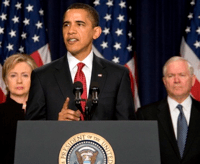
For many years, the United States has been the world’s most powerful nation. It remains the undisputed global leader in military power and still possesses vast economic and cultural influence. And while Washington’s ability to combine both hard and soft power to influence world events — what Joseph Nye calls “smart power” — has diminished somewhat, it is still in a far superior position relative to any other country. U.S. primacy, however, comes with opportunity costs. An alternate path might have delivered a comparable level of security at far less expense and risk. Even many who unabashedly celebrate our 20-year […]

The diffusion of power in the 21st century from states to nonstate actors has left more and more things outside the control of even the most powerful states. To accomplish their goals, states must do better at leveraging their smart power, which combines the hard power of coercion and payment with the soft power of persuasion and attraction. Doing so will often require wielding power with others rather than over them. What will it mean to wield power in the global information age of the 21st century? What resources will produce power? In the 16th century, control of colonies and […]

For decades now, strategic experts have predicted that our world was on the verge of a break-out in nuclear proliferation that would see us grappling with two- or three-dozen nuclear powers. Indeed, the inexorable spread of nuclear weapons is the closest thing to an unassailable canon in the field of international relations, as one cannot possibly employ the term “nuclear proliferation” without preceding it with the modifier “increasing.” This unshakeable belief, wholly unsupported by any actual evidence, drives many Cold War-era “wise men” to argue that mutually assured destruction (MAD) and strategic deterrence in general are obsolete and therefore immoral […]
There are plenty of compelling arguments against the intervention in Libya. The fact that it takes place as President Barack Obama embarks on his first tour of Latin America highlights the way in which our disproportionate and outdated engagement in the Middle East distracts us strategically from what I consider to be more important priorities in our own hemisphere. The delay in taking action allowed for a broad if fragile multilateral mandate, but also probably reduced the likelihood that the intervention will be immediately decisive and thereby raised the risk of a drawn-out stalemate. I, for one, think we could […]
Pulling back for a second from the debate over whether the U.S. should intervene in Libya, the process by which the actual international response unfolded is cause for optimism. Among the big-puzzle pieces that shifted, I see the following: – The U.S. as “law-abiding” global actor. President Barack Obama has already taken hits for indecisiveness and worse, but the fact that the administration held firm on multilateral mandates highlights its commitment to a multipartner world. – France and Britain as European security guarantors in the Mediterranean and Northern Africa. It remains to be seen how involved NATO will become in […]
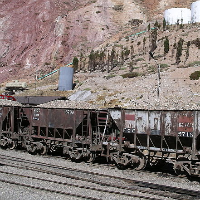
When it comes to good governance in the information age, transparency has few competitors as the fix du jour. This is especially true when it comes to oil, gas and mining revenue in developing countries, where many people rightly consider transparency an essential first step in curbing government corruption. But the discussions at the “Transparency Counts” conference, held by the Extractive Industries Transparency Initiative (EITI) in Paris earlier this month, strongly suggest that knowing how much money is coming in to government coffers is not enough if that money does not improve people’s lives. Natural resources are hot right now, […]
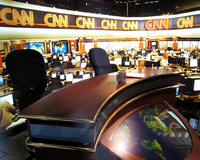
The CNN effect is alive and well in 2011, even if its 2.0 incarnation might now be labeled the Al-Jazeera effect. The fact that U.S. President Barack Obama and British Prime Minister David Cameron are now talking about a “full spectrum of possible responses” to support the opposition to Libyan leader Moammar Gadhafi and NATO is considering endorsing a “no-fly zone” over the embattled North African state — even as the war in Afghanistan rages and Iraq is far from settled — testifies to the ongoing power of the global media to drive even a superpower’s foreign policy agenda. But […]
Events in Libya are a further reminder for Americans that we stand at a crossroads in our continuing evolution as the world’s sole full-service superpower. Unfortunately, we are increasingly seeking change without cost, and shirking from risk because we are tired of the responsibility. We don’t know who we are anymore, and our president is a big part of that problem. Instead of leading us, he explains to us. Barack Obama would have us believe that he is practicing strategic patience. But many experts and ordinary citizens alike have concluded that he is actually beset by strategic incoherence — in […]
